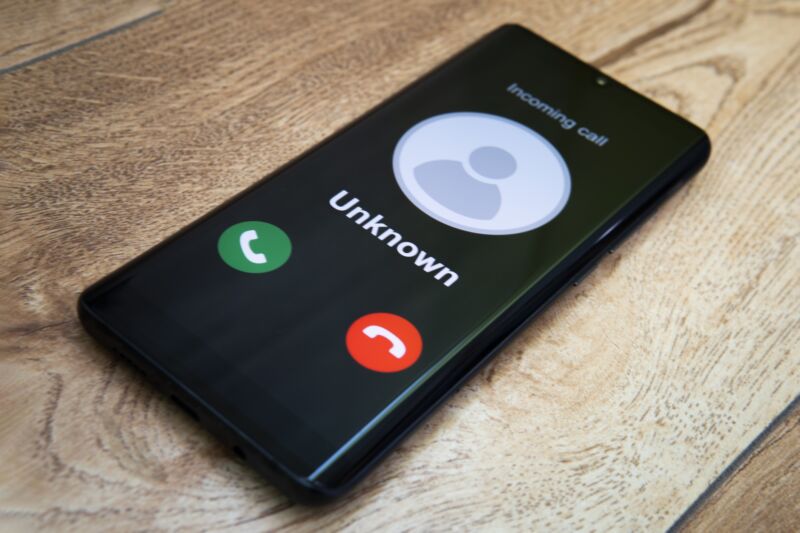
Getty Images | Diy13
The Federal Communications Commission said it is preparing to block a phone company that carried illegal robocalls pushing fake programs that promised to wipe out consumers’ tax debt. Veriwave Telco “has not complied with FCC call blocking rules for providers suspected of carrying illegal traffic” and now has two weeks to contest an order that would require all downstream voice providers to block all of the telco’s call traffic, the FCC announced yesterday.
Robocalls sent in the months before tax filing season “purported to provide information about a ‘National Tax Relief Program’ and, in some instances, also discussed a ‘Tax Dismissal Program,'” the FCC order said. “The [Enforcement] Bureau has found no evidence of the existence of either program. Many of the messages further appealed to recipients with the offer to ‘rapidly clear’ their tax debt.”
Call recipients who listened to the prerecorded message and chose to speak to an operator were then asked to provide private information. Nearly 16 million calls were sent, though it’s unclear how many went through Veriwave.
Veriwave is an “originating provider” that distributes call traffic to other phone companies before calls are delivered to landline and cellphone users. The Industry Traceback Group (ITG), which is run by the USTelecom trade association and coordinates with the FCC, conducted tracebacks on about two dozen calls and determined that Veriwave was the originating provider.
“The ITG notified Veriwave of these calls and provided the Company with supporting data identifying each call,” the FCC said in a previous order. “Veriwave did not contest it had originated the calls and identified one client as the source of all of the calls. Veriwave did not offer evidence of consent for the calls or contest the unlawful nature of the calls. Nor did Veriwave contest that any exceptions to the rules applied.”
No reply
The robocalls began, “I’ve been tasked to personally contact you and make sure that you have been provided the information about the new National Tax Relief Program. This relevant information is extremely important with helping those that owe back taxes to rapidly clear their debt.” The calls then listed eligibility requirements for the nonexistent program and instructed recipients to press 1 to speak to a person.
“If the recipient connected to a live operator, the live operator reportedly asked for personal information, including date of birth and Social Security number,” the FCC said.
The FCC said it reached out to Veriwave “about its robocall mitigation efforts, but the email was returned as undeliverable.” The FCC then sent a formal notice to the company but received no response.
The FCC on April 4 notified all US-based voice providers that they were permitted—but not required—to block calls from Veriwave. Under the FCC’s blocking procedures, yesterday’s order triggered a 14-day period in which Veriwave can respond and “demonstrate compliance” with the rules. After that, all phone companies “immediately downstream from Veriwave will then be required to block and cease accepting all traffic received directly from Veriwave beginning 30 days after release of the Final Determination Order.”
The FCC said the ITG conducted tracebacks of 23 illegal robocalls between November 30, 2023, and January 29, 2024, but the actual number of illegal robocalls is apparently much higher. “YouMail, a software app company, estimates that approximately 15.8 million calls of this nature were transmitted in the three months immediately preceding the start of the 2024 tax filing season,” the FCC said. “The Industry Traceback Group and the FCC traced a number of these calls to Veriwave as the originating provider.”
FCC records show that Veriwave, based in Delaware, testified under penalty of perjury in November 2023 that it completed implementation of the STIR/SHAKEN technology that inhibits robocalls by authenticating Caller ID information.




















+ There are no comments
Add yours